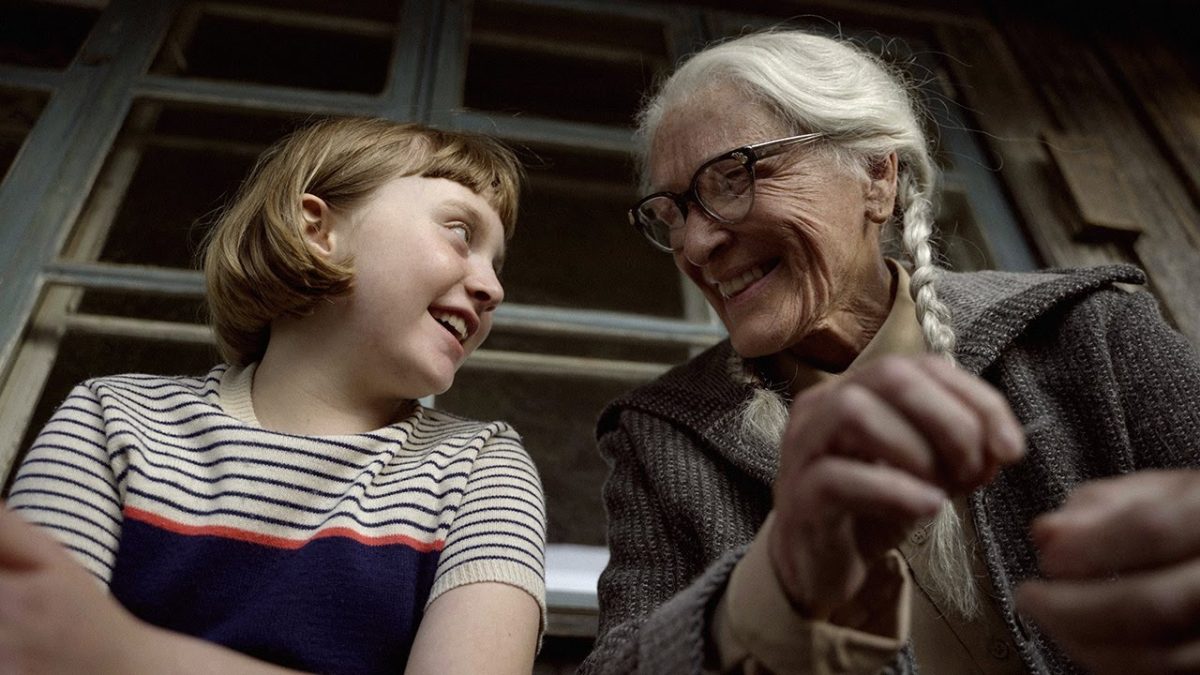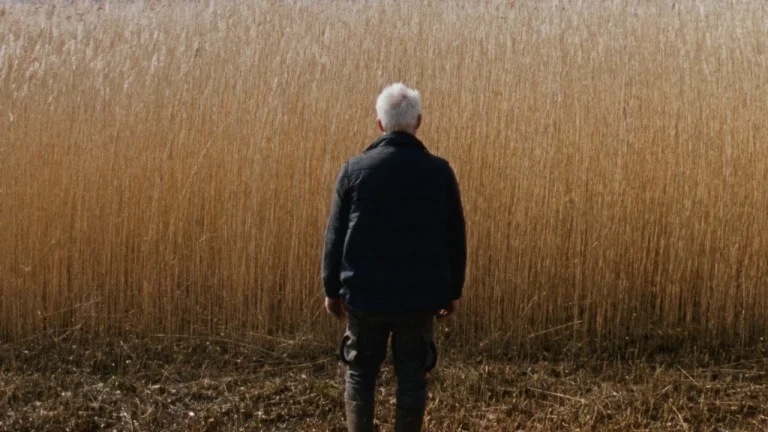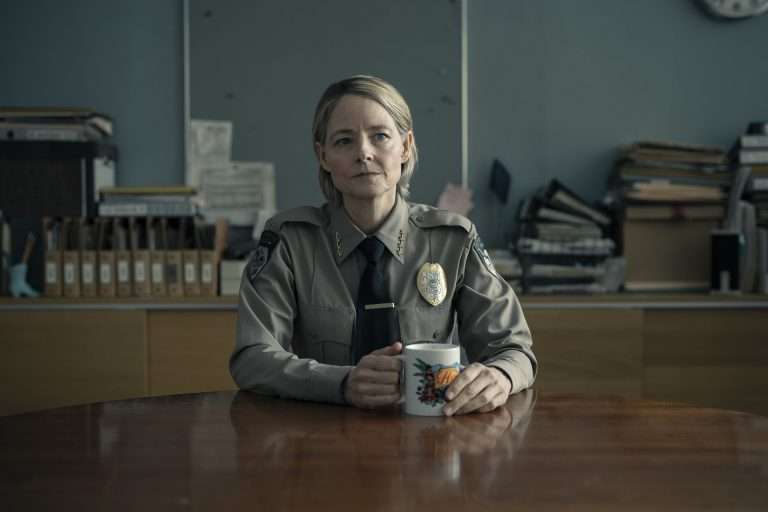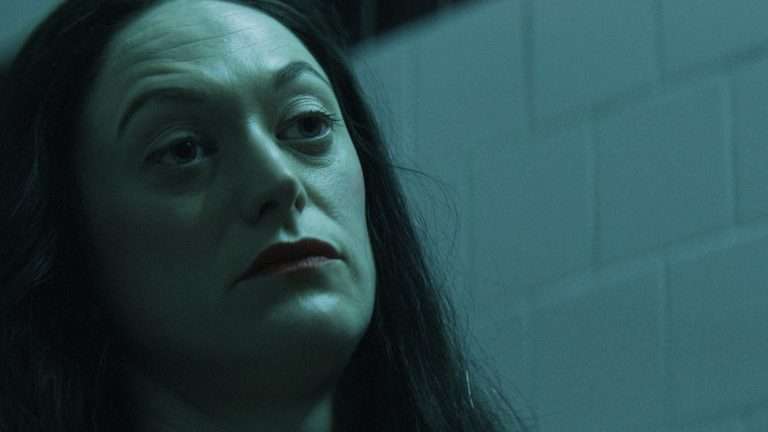Charlie McDowell’s “The Summer Book” (2025) lingers in the quiet space between telling and feeling, between memory and the sea-breeze of the Finnish archipelago, and in so doing is more incantation than film, a gentle invocation to the slipping away of life, the refusal of mourning, and the insistent bonds that hold us.
We begin here when Sophia, a little girl who still bears the unspoken sorrow of being apart from her mother, arrives with her father and grandmother on their summer island holiday in the Gulf of Finland. Her father, a professional craftsman and illustrator, is despairing, his grief so heavy it’s almost a burden, consigning him to solitary work and leaving Sophia to range over the island’s soggy rocks, sea-slicked shores, and little wooden hut more or less alone.
The grandmother, played by Glenn Close, is both anchor and wanderer. Her body carries the weight of years, her heart is cluttered with the quiet debris of a life fully lived, yet she still rows out with Sophia, braving the water to nearby islands. She hunts for the hidden sculptures of her girlhood and plants a poplar tree by the shore in memory of her daughter—a quiet act of love that binds past and present together. We learn in passing almost that this will be the mother’s first summer away, and that absence permeates all: the straw hat left on its string by the door, the half-look of the father in its direction, the grandmother carefully unpinning it and folding it away.
Day by day, the three roam or remain, sometimes under a storm, sometimes in sunlight, listening to the sea, watching the wind ripple the grass, waiting for the explosion of midsummer fireworks which may or may not come. The father’s grief is visible and invisible: he works with paints but doesn’t speak; he sows but his eyes don’t meet Sophia’s; when the island’s neighbor drops in to visit, he says, “the stench of sorrow keeps him away”.
Sophia, on the other hand, stirs her childhood curiosity along with her longing: she notices the moss, the tide-marks, the spaces where the mother is not; she asks the grandmother, sometimes foolish, sometimes profound – “He doesn’t love me since she died”, she tells her. The grandmother oscillates from teaching and withholding, honoring the child’s awe even as she herself is losing life. They paddle out to a “No Trespassing” island, Sophia delighted, grandmother wryly pleased. They discover a dead worm, the grandmother redefining it: “two worms now”. These small explorations amass memory, nature, life, and death so that the island becomes not merely a setting, but becomes a witness.
With her quiet walks, drifting afternoons, her laughter at seaweed fights, small battles of her own, the movie charts the way Sophia grows up, and her grandmother ages, and her father does not move. The planted poplar tree, the storms on day-trip days, the wandering stray cat that drifts in, the woods where grandmother ambles bare and unhampered, the chair that the mother left vacant – all of these are moments, joined together, which form a patchwork quilt of living and departing.
Ultimately, we have a less tidy conclusion and more layering of understanding: father reaching only partly, Sophia opening only partly, grandmother bowing to time only partly, but remaining. Beginning and end become one, as though the island holds their lives in its rocks and water. The absence that they came with isn’t erased – it gets substance, a presence in itself: Sophia still seeking, father still lost, grandmother still grounded.
And so the story does not hurry to catharsis. It exists in sand, in sea, in the passage of days, in the deep quiet between laughter and tears. In doing so, the narrative stops being about story and is instead about being – about being in the tiny, the physical, the mundane – and it invites us to live alongside, missing the ones we love while noticing the way the sun warms a rock, the way water seeps around the beach, the way a tree planted today might outlive us. The film crystallises its emotional architecture, weaving together the tactile and the transient, the generational and the intimate, into a quiet but deep exploration of how we live with absence rather than overcome it.
It is not just that “she shows her granddaughter how to hurl seaweed, and he shows her how to breathe once more; she plants a poplar in his wife’s memory, and beneath it they sit” gives this relationship its seriousness, but the manner in which those tiny gestures are performed. How long the camera lingers on the poplar sapling, how Sophia looks at the seaweed in the air, how the grandmother pauses halfway through the gesture so wind can mess up her hair – all of which take what could be ordinary intimacy and make it an examination of loss and rebirth and the promise of “book” in the title as both written and experienced.
Also Check: 10 Great Movies about Making a Fresh Start
This grandmother-granddaughter axis is the pivot on which this movie transforms: the grandmother is not a static repository of wisdom but one drained by years, body weakened, pace slow. Sophia is not the untouched innocence of childhood but a girl whose laughter carries the faint echo of what’s been lost. The planting of the tree becomes a quiet act of remembrance—roots must find the soil before new life can emerge. And the tossing of seaweed is her small rebellion against stillness, a gesture that says loss doesn’t have to anchor you; it can set you in motion.
We can hear behind these scenes echoes of other books – of “Swallows and Amazons” with its childhood tied to lakes and islands, of “My Ántonia” with its tempered communion of young and old, of “Wings of Desire” with its registering of the minute and the eternal – but “The Summer Book” reminds most of a haiku: the space of silence between the generations contains multitudes.
And so it does. It uses its long shots, low dialogue, low-key palette, and relaxed score (Hania Rani) to suggest that loss is not soap opera but texture: the crunch of leaves, the sun setting late, the empty straw hat on the stand that says more than any monologue. This is where the film challenges us: it does not rush towards healing or closure. Instead, it opens up space—space for the daughter to drift through her grief, and for the grandmother to feel the slow ache of time settling deep into her bones.
Beyond this island world, there is nothing: no ringing phones, no horns honking, no sirens screaming. Time elapses in tides, in dappled light, in fish nets drying and shrill boots from rain. And so along in that movement we experience how life goes: not in bangs but in sighs, not in fixations but in letting go. That slow pace, which some of the critics found “too static” or plot-less, in context registers as a renunciation of urgency, an insistence that the small gestures of living are more than worth any plot twist.

While the film’s softness and visual poetry constitute a kind of oasis in the noise of modern cinema, there’s a quietly nagging snag: in committing so fully to atmosphere and stillness, the film sometimes loses hold of the emotional truth of its characters and allows them to drift away into the silence instead of weighing them down with the gravity of story.
The father’s grief is sketched in delicate, almost hesitant strokes—the discarded straw hat, the sidelong glances, the gray wash that settles over his mood. Yet the film never plunges beneath the surface. We sense his distance, his solitude, the quiet weight of his mourning, but we are kept at the shoreline, never drawn into the dark undercurrent of his unraveling. The grandmother, rendered with quiet grace by Glenn Close, carries both fatigue and hard-won wisdom in her bones, but the film too often drifts into reverie instead of confronting the raw, unvarnished textures of loss and aging.
Her nudity in the forest, her sedate walk, her silent comprehension of time – they’re poetic, to be sure, but they don’t often propel us into the turmoil that aging, memory, and death can require. At the same time, the island’s magic – its boat-rides, its remembered poplar, its wind-swept rocks – exists in a superior sphere. But there are moments when the spectatorship is in danger of becoming passive: the visions are so lovely that the labor of the soul drops below their sheen.
Critics say, “it’s measured pace and insistence on visual beauty ultimately become draining”. The glorious moss-scabbed boulders, twisted cabins, and drippy light frequently steer the story, but walking through that ground does not shove itself hard enough into the viewer’s chest. It whispers when perhaps it might have burst. In a sense, the film’s mere effort to substitute spectacle with silence is admirable, a counter-rhythm to plot-driven cinema – but in another, this insistence on pausing tips towards inertia.
One longs not merely to gaze at the sea and the woods, but to feel the characters balanced on the edge of coming undone. The landscape could have been a living presence, yet at times the family’s domestic world stays sealed behind glass—observed, admired, contemplated, but never fully inhabited.
And still, the film’s quiet strength lies in its refusal to force momentum: it allows a summer to unfold and fade, leaving an imprint rather than a tidy resolution. It resists the clean architecture of endings; its flaws are born of its courage to linger. “The Summer Book” is both luminous and uneven—a work of rare patience and sensitivity, inviting the viewer to lean in closer than it ever quite lets them.



![The Parallax View [1974] Review – Deceptions Hidden in Plain Sight](https://79468c92.delivery.rocketcdn.me/wp-content/uploads/2020/01/The-Parallax-View-1974-768x432.jpg)
![The Passion of Joan of Arc [1928]: Every Bit Worthy Of Its Legendary Status](https://79468c92.delivery.rocketcdn.me/wp-content/uploads/2018/06/the-passion-of-joan-of-arc-768x542.jpg)



